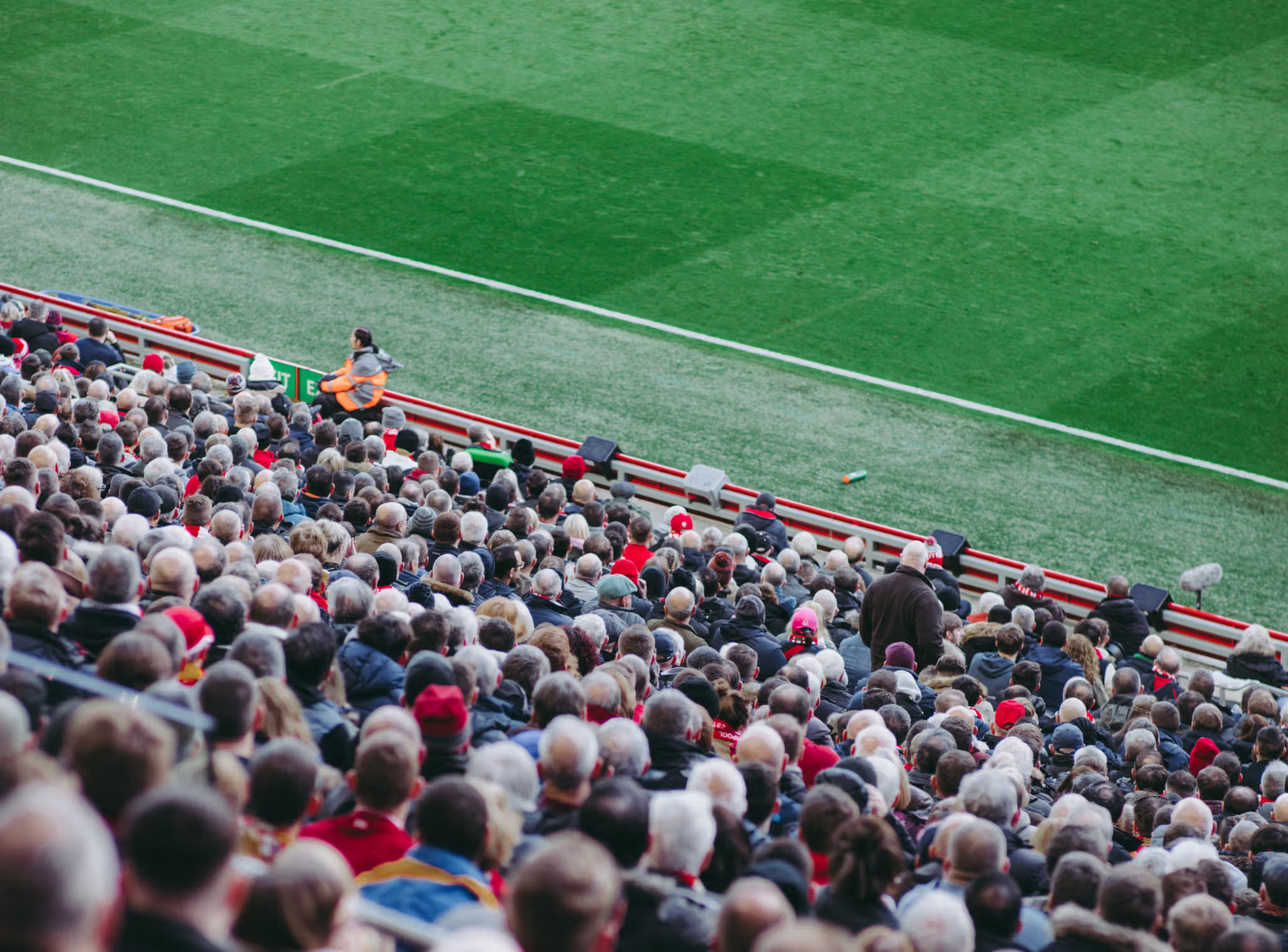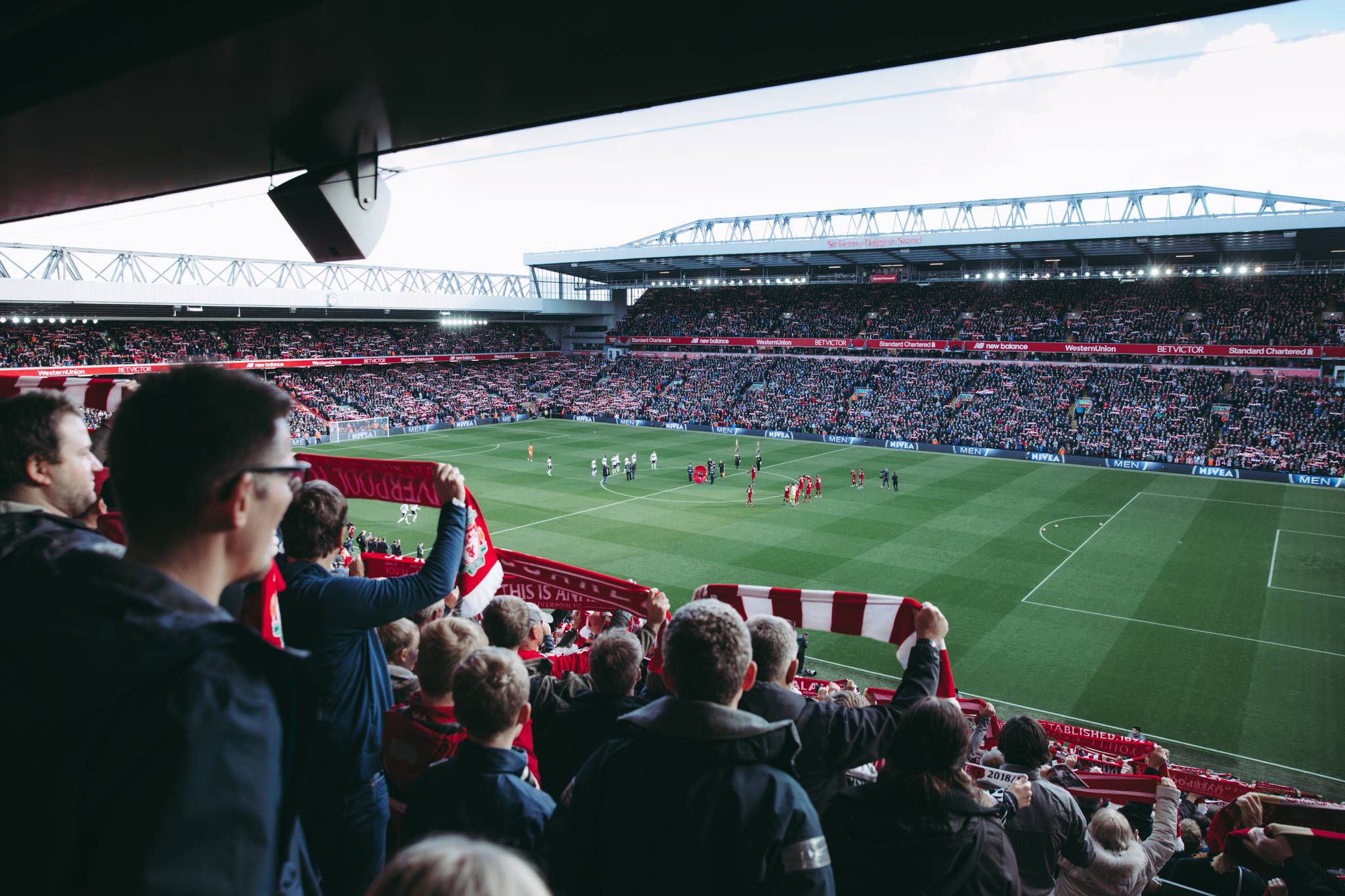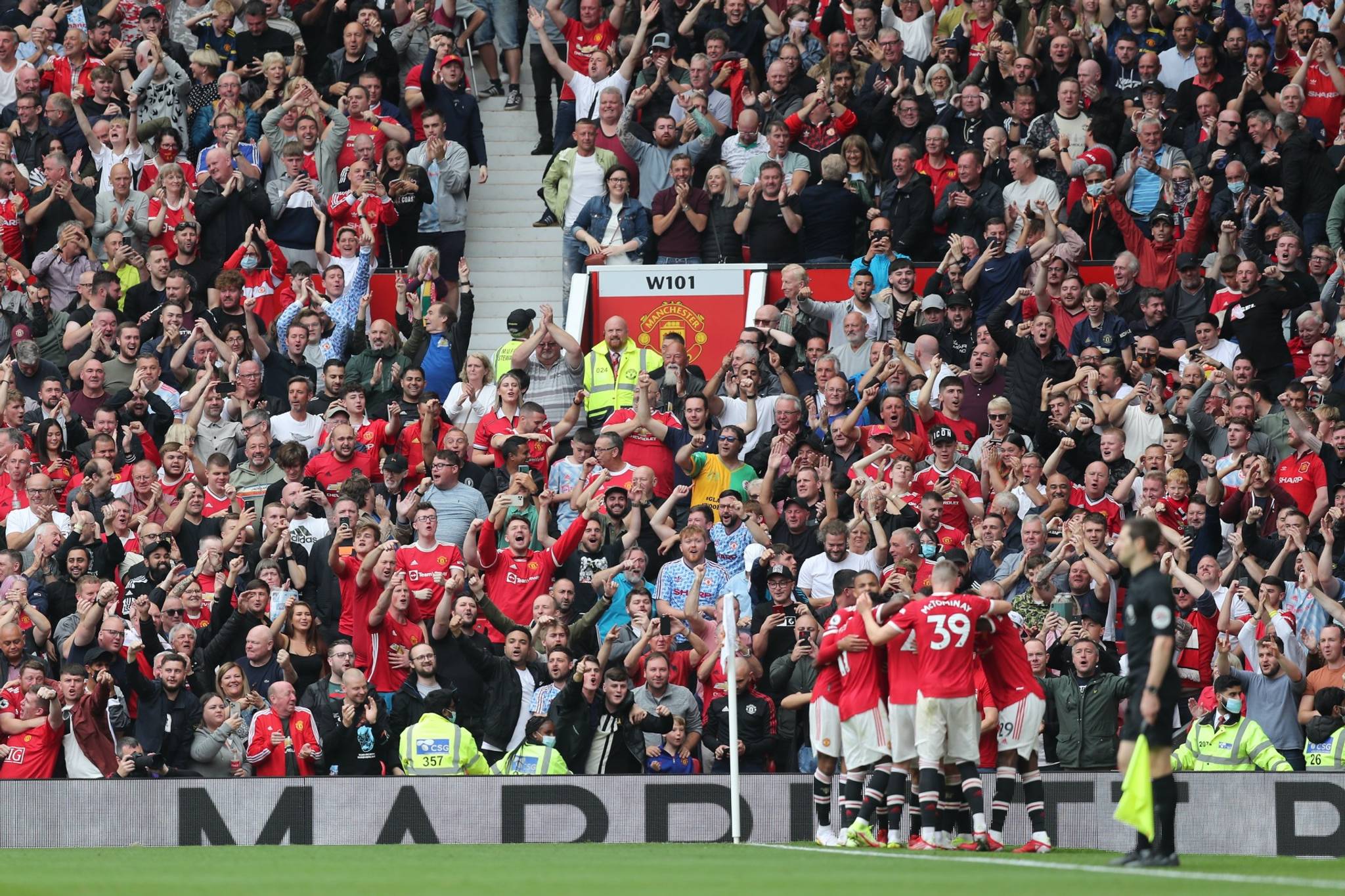
With wealth often defining the teams in top-tier English football, fandom has become increasingly detached from its regional and working-class roots. However, as dedicated supporters make their voices heard and demand representation, notions of fandom and club ownership are evolving.
Ahead of the 2022 FIFA World Cup in Qatar, football fandom is under the spotlight yet again. In early October, both London and Paris announced a boycott of ‘fan-zones’ and public screenings of matches in a move to condemn the host nation’s human rights record. Alleged corruption ahead of the 2010 vote that led to the country’s selection also resulted in outcry, with claims that FIFA officials were bribed to award the tournament to Qatar. It’s an all-too-familiar story for English football fans, many of whom have become disillusioned with the rampant monetisation of the sport and misconduct from high-powered officials.
The marketisation of domestic football in England during the early 90s and the domination of broadcasting rights by media conglomerates are far flung from the sport’s working-class origins – feelings compounded by recent controversies regarding a proposed breakaway Super League and Newcastle’s United’s takeover by the Saudi state-run Public Investment Fund. Among the clubs in the English Premier League, 40% are majority-owned by foreign investors, with a further 35% having foreign investors as minority stakeholders – a fact that often sees fan interests fall by the wayside in favour of monetary gain.
However, with traditional notions of fandom disintegrating, supporters across the country are making their voices heard. Nationwide fan-led protests that began outside Chelsea’s Stamford Bridge stadium eventually saw all six English top-flight clubs pull out of the planned Super League – a demonstration of the power that supporters still hold over ownership and investors.
As a founding member of We Are The Shed, a Chelsea supporters group that aims to improve the atmosphere at Stamford Bridge and across the whole fanbase, Alex Burke has a keen insight into the current state of football fandom – we spoke to him to find out more.
How has the identity of football fans changed during the Premier League era?
The identity of football supporters in the UK has definitely shifted over the last 20 years. As the Premier League has increasingly globalised, more and more money has been pumped in, increasing its reach and popularity. Fans now come from all over the world and can engage with their team in various ways other than attending matches. There are positives to this of course, where crowds and support bases are becoming more diverse and inclusive, and there are fewer barriers to following certain teams. The drawbacks, however, mean that fans are more attracted to successful sides (or those with money), rather than supporting their local team. The fear is that clubs end up being sterilised and risk losing aspects of their identity, history, and culture. Nevertheless, every club still has a section of core, traditional fans who will support their local side regardless, following them through thick and thin – hopefully, this will continue to be the case long into the future.
What are fans currently asking for from their football clubs?
Across all clubs, there’s increasing demand for match-going supporters to be considered and not be neglected as often as they currently are. For many years now, it feels like supporter issues have revolved around those watching on TV rather than those going to games. A prime example of this would be Premier League kick-off times, which are regularly based on the demands of broadcasters rather than the needs of travelling supporters. Despite the era of streaming services and social media, match-going fans still have to feel valued. On top of this, attending matches still costs too much. While there have been some improvements in ticket prices over the last few years (such as long-standing price freezes from many clubs and the £30 cap on away tickets in the Premier League), a day out at the football is still unaffordable for most. Supporters in this country want to be heard and need platforms through which they can voice their opinions. Fan representation in club hierarchies is the most typical suggestion to enable this – 50+1 ownership models and ‘golden share’ powers would be the dream for many supporters in England. At Chelsea, since our group primarily focuses on atmosphere and overall supporter experience, we’re always pushing for the club to support proposals such as a singing section at Stamford Bridge, which is currently an item of discussion.
Are you seeing any meaningful changes being made to give fans more of a say?
Since the failed attempt at the European Super League, many clubs have thankfully taken the negative reaction from supporters on board. A few Premier League clubs have since introduced fan representation into their club structure. This includes Chelsea, which now provides access for an elected fan representative to attend board meetings four times a year. Since the new ownership has taken control at Chelsea, those at the top of the club have been eager to meet with supporters, including our group. At the start of the 2022/23 season, we sat down with a couple of board members and discussed a lengthy agenda, including the improvement atmosphere, ticketing, community involvement, and stadium redevelopment. Discussions were very positive and led to some actions, such as the creation of a working group for atmosphere at Stamford Bridge. The new owners certainly appear keen to pursue engagement with supporters, which is something we’re excited about.
Do you think fans are excited ahead of the World Cup this year?
I think it’s safe to say that barely anyone is looking forward to this World Cup as much as they usually would. This is down to several factors, primarily the nation’s human rights record and the death toll of migrant workers that has stemmed from preparation for the tournament. Alongside this, the corruption which led to the selection of Qatar is proof that wealth and greed have become embroiled in the game. The timing of the tournament is another issue, where it feels odd that the competition will be played during our winter months, which also unsettles the Premier League calendar this season. Finally, Qatar remains a very difficult and expensive place to travel to for a World Cup, which has put off a large contingent of fans who would otherwise attend. All these problems have created a rather negative atmosphere around the tournament this year and there’s not the usual sense of World Cup excitement.
Do fans generally have an optimistic outlook regarding the future of their clubs and their involvement?
The outlook is certainly a lot more positive than it was a few years ago. During lockdown, the absence of people in stadiums emphasised the importance of match-going fans. Thankfully, clubs took note of this, and many Premier League clubs seem far more proactive when engaging with supporters now. On a similar note, the reactions of fans across the country to the suggestion of a Super League showed the power that we can have. This also forced clubs to give supporters more say, introducing more methods for supporter consultation and engagement. While we do seem to be going in the right direction, supporters must be cautious that these aren’t token gestures, being done to silence things in the short term. Even though the Super League failed in its first attempt, there’s still the threat that proposals will return in another form. While small steps have been made in the last few years, there’s still a very long way to go, particularly for the biggest clubs in the Premier League.
As Alex explains, future visions of football fandom are emerging thanks to the willingness of supporters to take a stand and fight for representation within the clubs they love. Some 40 English teams are already owned by their supporters, including League One’s Exeter City as well as AFC Wimbledon and Newport County in League Two. These models ensure that the clubs are run with communities of fans at the heart of their decisions. But for the vast majority whose preferences are often overlooked, 71% agree that they should have a greater opportunity to own the teams they support.
While some board members are beginning to listen to supporters’ concerns and are looking to involve them in decision-making processes, there’s still much work to be done. Tech solutions have emerged with this in mind, like the blockchain-enabled app Socios and French club Paris Saint-Germain’s cryptocurrency, which allow supporters to buy ‘Fan Tokens’ that grant voting rights on club decisions. However, with the adoption of this sort of technology low and with money still a priority for many clubs, what does this mean for the future of football fandom?



